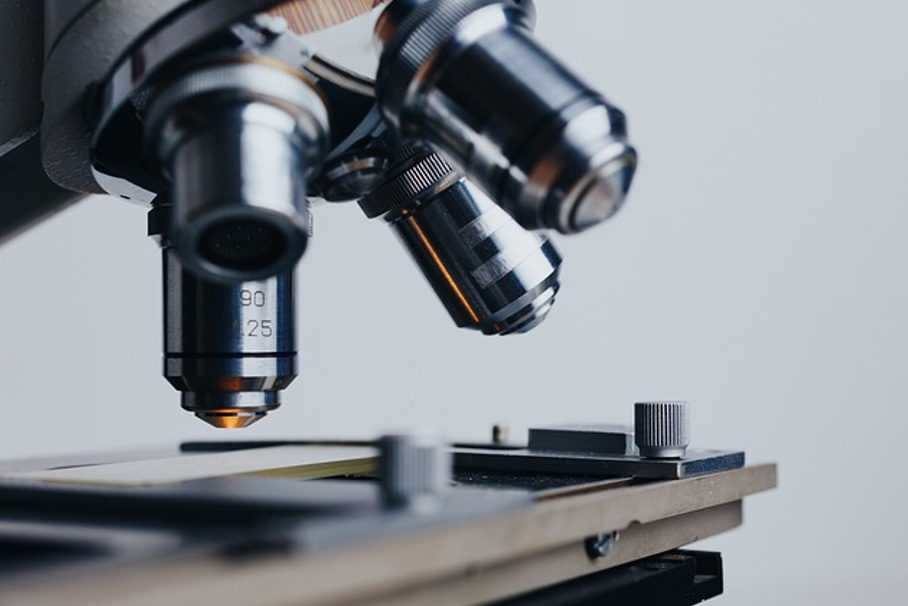What Is A Chemist?
A chemist is a scientist who researches and analyzes the chemical properties and chemical compounds of substances to develop new materials, products, or knowledge, according to a report published by California State University, Northridge.
The U.S. Bureau of Labor Statistics said chemists are also known as materials scientists. Additionally, materials scientists investigate how materials perform and why they sometimes fail. Materials Science and Engineering (MSE) is generally about the combination of engineering, physics, and chemistry principles to solve real-world problems associated with nanotechnology, biotechnology, information technology, energy, manufacturing, and other major engineering disciplines.
A report mentioned most chemists and materials scientists work as part of a team that may include physicists, microbiologists, and engineers.
What Does A Chemist Do?
A study indicated chemists and materials scientists usually work in either basic or applied research.
In basic research, chemists and materials scientists investigate the properties, composition, and structure of matter. They also experiment with combinations of elements and the ways in which they interact.
In applied research, material scientists investigate and chemists develop new products or improve existing ones, such as medications, batteries, and cleaners.
Moreover, the responsibilities of chemists also vary depending on the nature of their work environment. For example, advanced chemists generally perform research while education chemists train students to conduct chemical experiments and help them acquire important qualities and analytical skills.
Other Duties And Responsibilities Of Chemists And Materials Scientists
The U.S. Bureau of Labor Statistics enumerated the following tasks as duties of chemists and materials scientists:
- Plan and carry out research projects, such as the development of products and testing methods
- Direct technicians and other staff in chemical processing and testing, including ingredients, mixing times, and operating temperatures
- Collaborate with other colleagues chemists, engineers, and scientists on experiments, product development, production, and manufacturing processes
- Prepare solutions, compounds, and reagents used in laboratory procedures
- Analyze substances to determine their composition and concentration of elements
- Develop new chemical compounds and chemical processes for use as drugs
- Conduct tests on materials and other substances to ensure that safety and quality standards are met
- Write technical reports that detail methods and findings
- Present research findings to scientists, engineers, and technical and non-technical audiences
How To Become A Chemist?
Education and Training
Chemists and materials scientists typically need a bachelor’s degree in chemistry, a related physical science field, or a certification in any undergraduate chemistry program, according to a report published by California State University, Northridge.
Some chemist job positions require a master’s degree or Ph.D. and work experience. Chemists and materials scientists with a Ph.D. and postdoctoral experience may lead research teams.
Moreover, graduate students in chemistry commonly include specialization in a subfield, such as theoretical chemistry or materials science. For example, those interested in doing pharmaceutical research may choose to develop a strong background in medicinal or organic chemistry.
Important Qualities Of A Chemist
- Analytical skills
- Communication skills
- Interpersonal skills
- Math skills
- Organizational skills
- Problem-solving skills
- Time-management skills
- Perseverance
Branches Of Chemistry

Organic Chemistry
American Chemical Society defines organic chemistry as the study of the structure, properties, composition, reactions, and preparation of carbon-containing compounds. Most organic compounds contain carbon and hydrogen, but they may also include any number of other elements like nitrogen, oxygen, halogens, phosphorus, silicon, and sulfur.
Originally limited to the study of compounds produced by living organisms, organic chemistry has been broadened to include human-made substances like plastics.
Organic chemists study new methods for synthesizing existing compounds as well as developing new compounds.
Inorganic Chemistry
According to a study published by Science Direct, inorganic chemistry can be described very generally as the chemistry of noncarbon compounds. It is the subcategory of chemistry concerned with the properties and reactions of inorganic compounds, which includes all chemical compounds without the chains or rings of carbon atoms that fall into the subcategory of organic compounds.
Inorganic chemists study the composition and behaviors of these compounds. Substances such as fertilizers, pigments, and surfactants often result from research within inorganic chemistry.
Biochemistry
Biochemistry is the application of chemistry to the study of biological processes at the cellular, molecular, and atomic levels. It emerged as a distinct discipline around the beginning of the 20th century when scientists combined chemistry, physiology, and biology to investigate the chemistry of living systems, according to a report posted online by McGill University.
Biochemists or chemical engineers specifically study molecular and cellular processes, how cell structures relate to their functions, and how cells interact with one another. This branch of chemistry is useful for the study of disease and the development of medicines in the pharmaceutical industry.
Physical Chemistry
Physical chemistry deals with the principles of physics involved in chemical interactions. The American Chemistry Society mentioned this branch of chemistry is about understanding the physical properties of atoms and molecules, the way chemical reactions work, and what these properties reveal. Experts said physical chemistry is a good area for chemists who have a strong curiosity about how things work at the atomic level and enjoy working with lab instrumentation and machines.
Physical chemists study, discover, test, and strive to understand the physical characteristics of a material like solid, liquid, or gas.
Analytical Chemistry
According to the National Library of Medicine, analytical chemistry is the discipline that studies the details of the composition and structure of both natural and man-made objects.
Analytical chemists identify elements and specialize in using quantitative methods of research to determine the amounts of certain chemicals within a matter, as well as qualitative methods to examine chemical composition. This branch of chemistry can have applications in healthcare and genetics.
Forensic Chemistry
Forensic chemistry is the application of chemistry to legal procedures.
The American Chemical Society mentioned forensic chemists aid law enforcement officers by analyzing physical evidence and samples for clues to solve crimes. This branch of chemistry involves sample collection, analysis, and testing to identify chemical compounds that can help resolve crimes.
Most forensic chemists work primarily in labs associated with a federal, state, or local police department, medical examiner’s office, forensic services lab, or branch of the Federal Bureau of Investigation (FBI). Additionally, here are a few private labs that carry out forensic analyses.
Medicinal Chemistry
Medicinal chemistry involves the creation and refinement of molecules for the purpose of creating or improving drugs, according to a blog published online by Northeastern University. This branch of chemistry is grounded in synthetic organic chemistry, a discipline in which scientists combine small molecules to create new ones.
Medicinal chemists research the production of new medicines and the improvement of existing ones. They often work for pharmaceutical companies or biotechnology companies.
Where Can A Materials Scientist Find A Job?
Chemists or materials scientists typically work in laboratories and offices, where they utilize employers’ laboratory equipment and conduct experiments and analyze their results. According to the U.S. Bureau of Labor Statistics, some chemists and materials scientists advance also in industrial manufacturing facilities.
Reports showed chemists held about 87,100 jobs in 2022 and materials scientists held about 7,900 jobs in the same year.
Can A Chemist Work From Home?
In recent years, the field of chemistry has experienced a significant shift towards remote work. The shift has opened up new and exciting opportunities for chemists and materials scientists to contribute to research and scientific advancements from the comfort of their own homes.
The virtual course in the field of chemistry was made possible and seamless by the convergence of technology, data accessibility, and collaborative tools.
One of the primary roles that chemists can perform remotely is computational chemistry. The American Chemical Societysaid computational chemists use high-performance computing to solve problems and create simulations that require massive amounts of data. Advances in computational power and software development have empowered chemists to conduct complex simulations without the need for a physical laboratory.

Additionally, the rise of remote chemistry jobs has been pushed by the increased adoption of automation and robotics in laboratories. An article published online by MIT Technology Review reported IBM has built a new chemistry lab called RoboRXN in the cloud. It combines AI models, a cloud computing platform, and robots to help scientists design and synthesize new molecules while working from home.
How To Hire A Remote Chemist Employee
If you are looking for a chemist or materials scientist to fulfill a position in your company, feel free to reach out to Remote Raven. The company has expert recruitment specialists who will help you in each stage of the hiring process. Remote Raven is committed to finding you a professional, well-trained, and thoroughly screened individual to meet your specific business needs.
###





